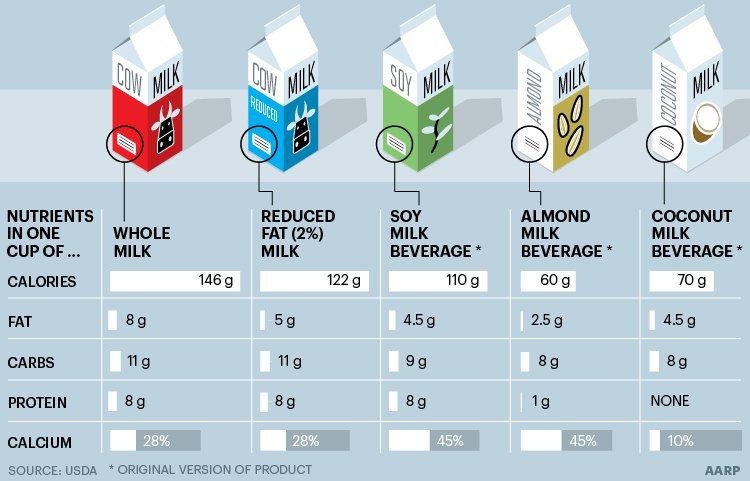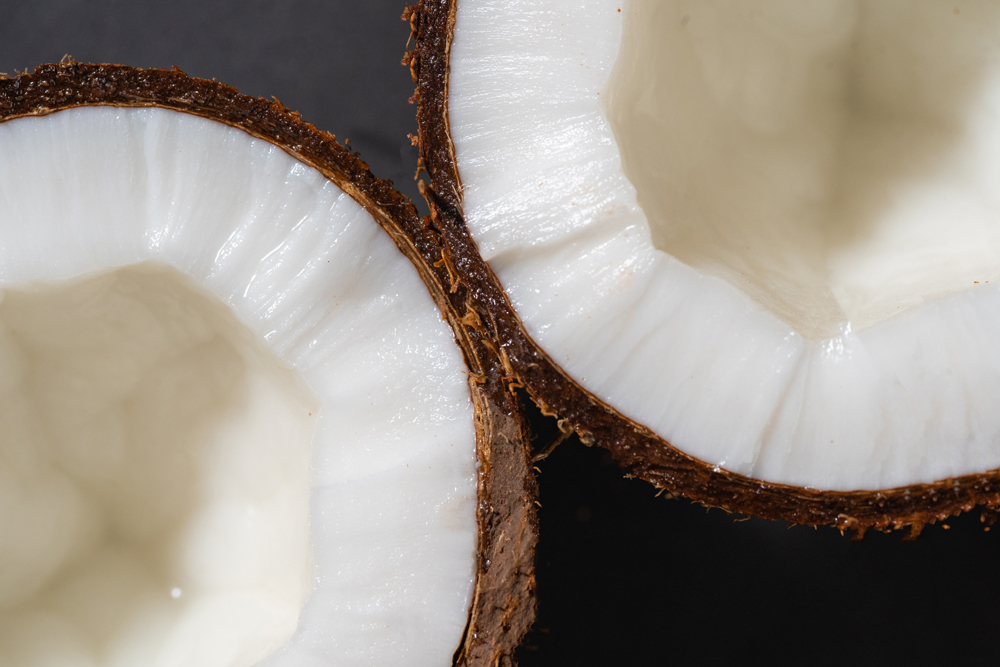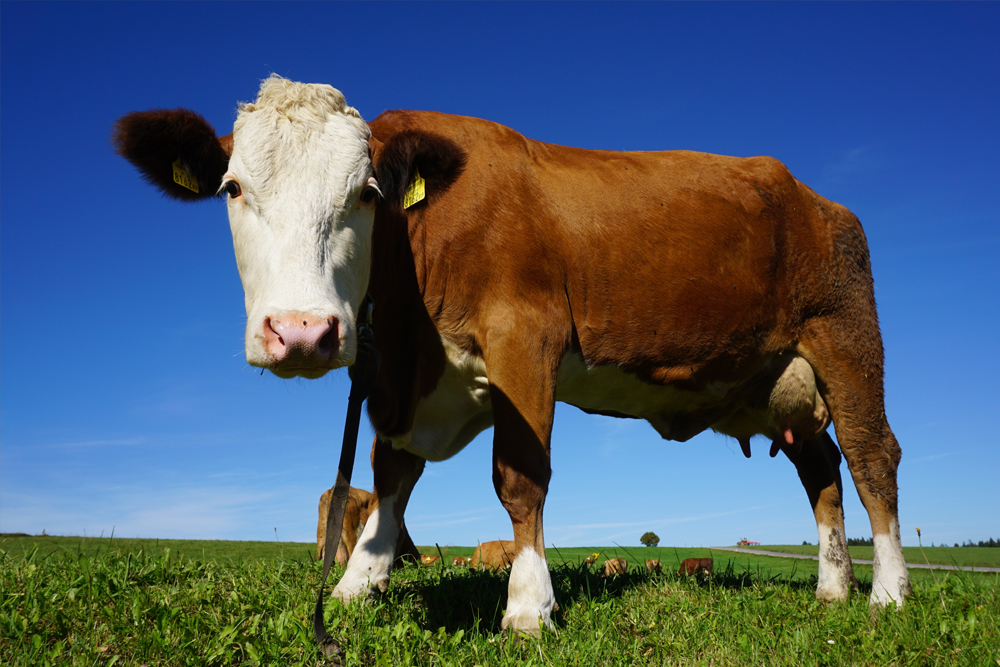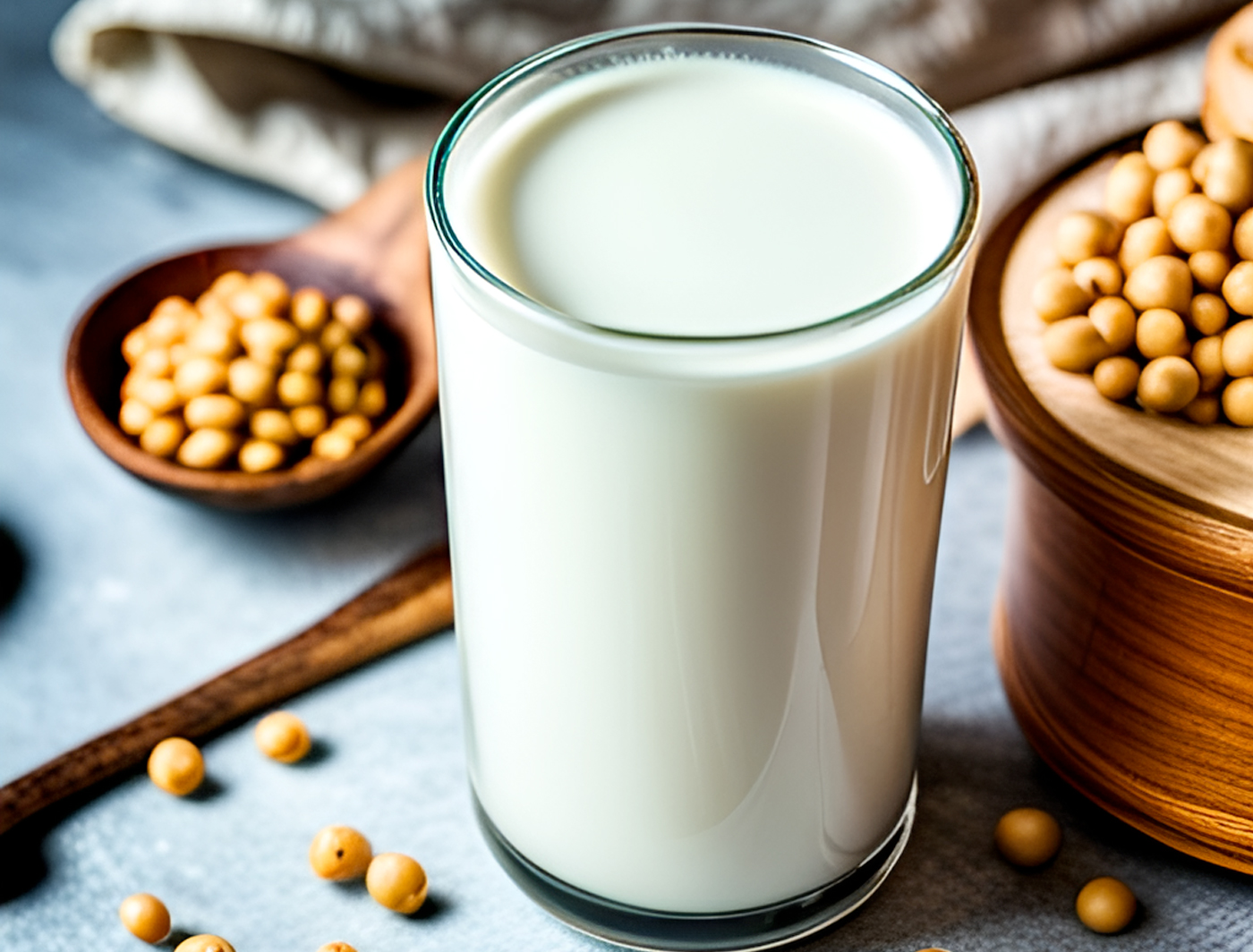When it comes to choosing the right milk for your dietary needs, it’s essential to consider the nutritional content and compare various options. Let’s take a closer look at different types of milk and their respective nutritional profiles.

Whole Cow Milk
Starting with whole cow milk, one cup provides approximately 146 calories. It contains 8 grams of fat, 11 grams of carbohydrates, and 8 grams of protein. Additionally, a cup of whole cow milk supplies you with about 28% of your daily recommended intake of calcium, which is crucial for maintaining healthy bones and teeth.
Reduced-Fat 2% Cow Milk
Reduced-fat 2% cow milk offers a lighter alternative to whole milk while still providing essential nutrients. With 122 calories per cup, it is slightly lower in fat, containing 5 grams. The carbohydrate content remains the same at 11 grams, and it also offers the same amount of calcium as whole milk, providing 28% of your daily recommended intake.
Soy Milk
For those who prefer plant-based options, soy milk is a popular choice. With 110 calories per cup, it offers a relatively low-calorie alternative. Soy milk contains 4.5 grams of fat, 9 grams of carbohydrates, and 8 grams of protein, making it a suitable option for individuals seeking additional protein in their diet. Moreover, it is a rich source of calcium, providing 45% of your daily recommended intake.
Almond Milk
Almond milk, another plant-based milk, is known for its nutty flavor and lighter consistency. With only 60 calories per cup, it is significantly lower in calories compared to cow’s milk. Almond milk contains 2.5 grams of fat, 8 grams of carbohydrates, and 1 gram of protein. Despite its low protein content, it still offers 45% of your daily recommended intake of calcium.
Coconut Milk
Lastly, coconut milk, derived from the flesh of coconuts, presents a unique flavor profile. It contains approximately 70 calories per cup, with 4.5 grams of fat and 8 grams of carbohydrates. However, coconut milk has negligible protein content, with 0 grams per cup. While it offers 10% of your daily recommended intake of calcium, it’s important to note that it provides less protein compared to other milk options.
In summary, each type of milk has its own nutritional composition, allowing you to choose one that aligns with your dietary preferences and needs. Whole cow milk provides a balanced profile of calories, fat, carbohydrates, protein, and calcium. Reduced-fat 2% cow milk offers a lighter option while maintaining similar nutritional benefits. Soy milk is a plant-based alternative with higher protein content and a substantial amount of calcium. Almond milk is a low-calorie option, rich in calcium, but lower in protein. Coconut milk, while low in calories, lacks protein and provides a smaller percentage of the daily recommended intake of calcium. Consider these factors when making an informed decision about which milk suits your individual dietary requirements.



Is Too Much Soy Unhealthy?
The question of whether consuming too much soy is detrimental to health, particularly in relation to breast cancer, has been a topic of discussion and research. Let’s delve into this issue further to gain a better understanding.
Soy is a versatile legume that has been consumed for centuries in many Asian countries as a dietary staple. It contains various beneficial compounds, including proteins, fiber, vitamins, minerals, and phytoestrogens called isoflavones. These isoflavones have a chemical structure resembling estrogen, which has led to concerns about their potential effects on hormone-related conditions such as breast cancer.
However, the current body of scientific evidence does not support the claim that soy consumption increases the risk of breast cancer. In fact, numerous studies suggest that moderate soy consumption may have protective effects against certain types of cancer, including breast cancer. The isoflavones in soy have been shown to exhibit anti-cancer properties and may help regulate hormone balance in the body.
Several large-scale epidemiological studies conducted in countries with high soy consumption, such as Japan and China, have consistently found lower breast cancer rates among women who regularly consume soy products. Furthermore, clinical trials and meta-analyses have failed to establish a causal link between soy consumption and an increased risk of breast cancer.
It’s important to note that the majority of concerns surrounding soy and breast cancer arose from early studies that were conducted on animals or in cell cultures, where extremely high doses of isolated soy components were used. These studies do not accurately reflect the typical soy consumption patterns in human diets.
However, as with any food, moderation is key. Consuming moderate amounts of soy as part of a balanced diet is generally considered safe and even beneficial. The American Cancer Society and other reputable health organizations suggest that consuming one to two servings of soy foods per day is unlikely to have adverse effects on health.
It’s worth mentioning that individual responses to soy may vary, and if you have a personal or family history of hormone-sensitive cancers, it’s always prudent to consult with a healthcare professional for personalized advice. They can provide guidance based on your specific health circumstances and help you make informed decisions about your diet and lifestyle choices.
In conclusion, current scientific evidence does not support the notion that moderate soy consumption increases the risk of breast cancer. On the contrary, soy has been associated with potential protective effects against certain cancers. As with any dietary component, moderation and a well-balanced diet remain essential for overall health and wellbeing.



